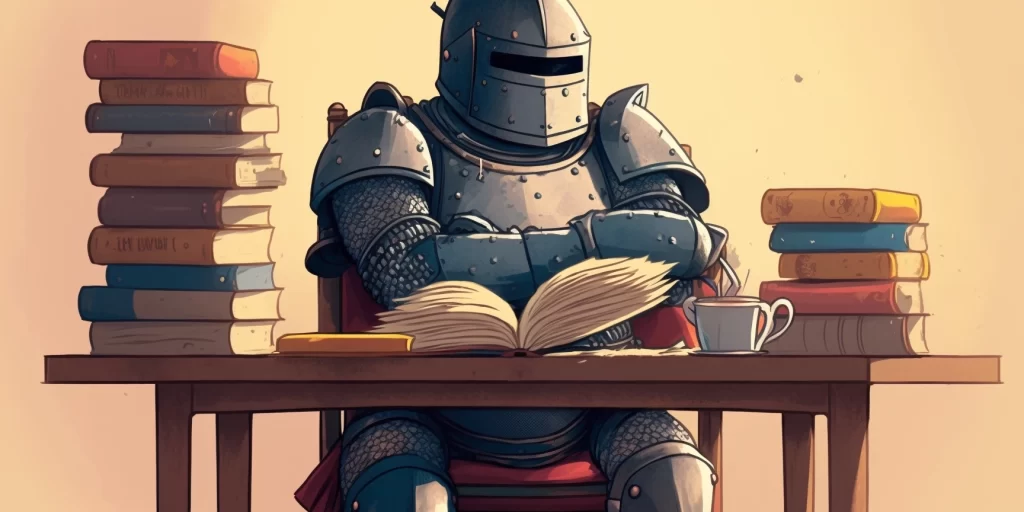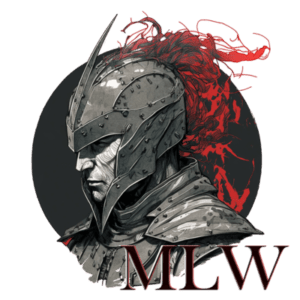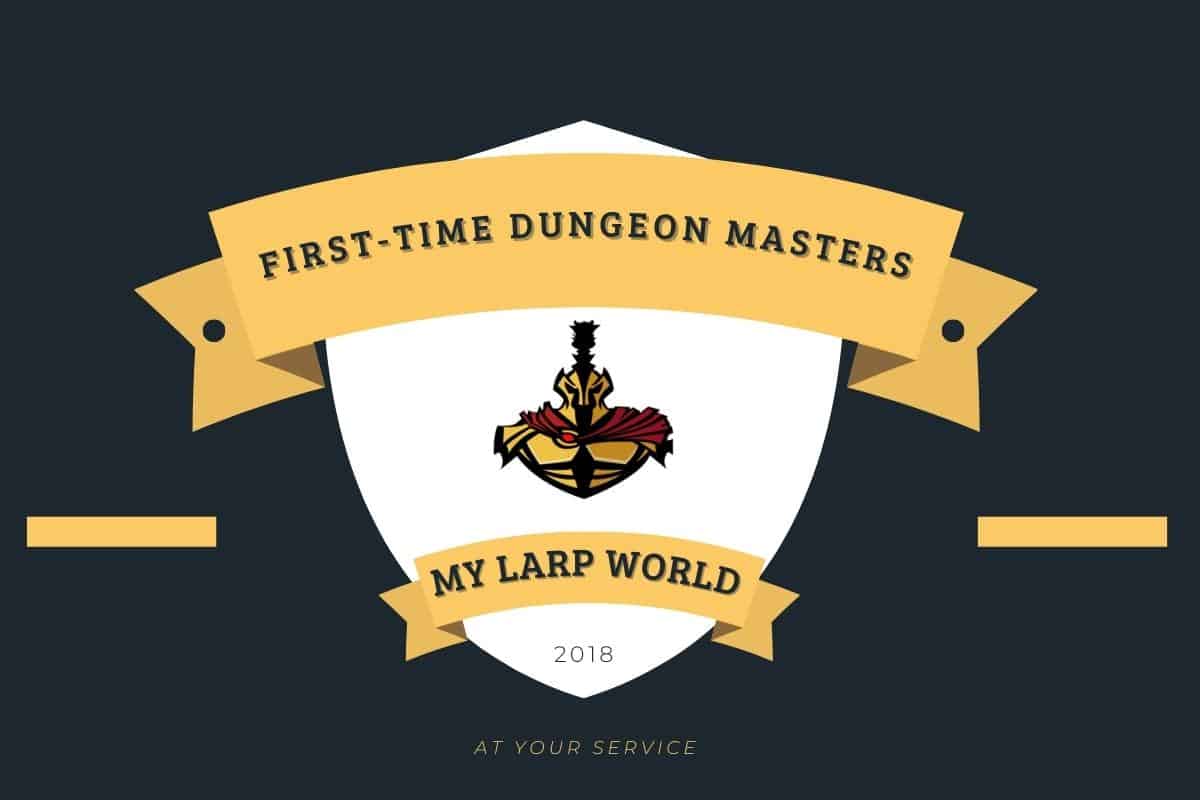So, you’ve finally decided to start playing D&D. And on top of that, you have been assigned or chosen to play the role of the Dungeon Master. This might seem like a daunting task at first, but fret not – I’m here to guide you through the steps.
You can absolutely DM without having played DnD before, especially if you’re with a group of new players. Learn the basic rules, and keep it simple in the beginning. New DMs should read the Dungeon Master’s Guide (DMG) to get started under the best possible circumstances and start with an appropriate beginner adventure.
What do you need to get started as a new DM? What are some of the most important tips? Read more to find out.
What does a DM do?

A DM, short for “dungeon master”, is a person who does not control a player character. Instead, the dungeon master acts as the voice of narration, and the controller of all the non-playable characters. Moreover, the dungeon master is usually the “referee” for other players.
This means that the dungeon master makes calls for what rolls of dice meet the criteria for what a player wants to do, what type of stat a player needs to roll for in certain situations, and so forth.
Being a DM is generally more “work” than being a player character, but it’s also very rewarding.
What Do You Need To DM As A New Player In D&D?
The reality of Dungeons and Dragons is that everyone started as a beginner. Playing as a beginner can be just as fun as playing as an experienced player. There are a few things you need as a new player, however, which I will go over below.
1. Keep It Simple
This is a very good rule to have when you’re first starting out in Dungeons and Dragons. Stay within the basic rules and don’t include any too radical races, spells, or gear in the beginning. This will only serve to confuse you.
Another good rule of thumb is to not complicate the relationship between your player characters at the very beginning. Make them have a common goal, and work towards that goal.
2. Learn The Basic Rules Of The Game
To act as DM, you will need to learn the rules of the game to be able to steer everything from combat to narrative. Luckily, there exists a bunch of resources to help you with this. I would recommend reading the basic rules from the D&D website.
Another great resource is the Dungeons and Dragons starter set. The starter set is a great book for new players as it introduces important rules of the game – It also includes five characters with character sheets, plus a simple and fun adventure called Lost Mines of Phandelver.
For advanced DMs and beginners alike, I can also recommend Matt Colville’s YouTube series “Running the Game”. He is an experienced DM who makes good content for DMs of all levels and knowledge.
Read more: The Cheapest DnD Books
What Books Do I Need As A New DM?

The three most fundamental books in D&D are as follows: the Player’s Handbook (PHB), the Dungeons Master’s Guide (DMG), and the Monster Manual (MM).
Now, as a DM, the DMG is a relevant book for you. MM is useful, sure, but not necessary. There are plenty of resources online for monsters that can help you create and narrate adventures.
PHB is good for learning rules and character creation. However, something important to remember is this: you don’t have to read every single book on D&D to be able to play the game.
In fact, you can bend rules to your liking. This is called “homebrewing”. The main point of playing is to have fun, not to get completely bogged down in text.
You might also like: How Big Should a DM Screen Be?
What Is A Good Campaign For Beginner DMs?
If you’re a beginner DM, then chances are you’re playing with beginner friends. This means that it is beneficiary for everyone involved if you play an adventure that everyone can understand and enjoy.
For your very first interactions in DnD, I recommend that you do a scenario that isn’t too long (a “real” campaign in DnD can take weeks to complete) but introduces you and your friends to the various mechanics and rules within the game.
I would recommend that you either play a short dungeon scenario (you can find a lot of short scenarios here) or simply make your own! It’s easier than it sounds.
Use this to find mobs (with their stats) to put in the dungeon, and then use your imagination to come up with a reason you’re there, and what the goal is.
Read more: What’s the Easiest RPG System To Learn?
Preparing Your First Session In Dungeons and Dragons As A New DM

This largely depends on what type of a DM (and person) you are. If you’re good at improvising scenarios, then you might not need to prepare for every possible outcome of your session, while if you’re very particular and detail-minded, you might want to plan more.
Remember, the scenario and its results are creations of your imagination, which means that there aren’t any rigid rules to abide by. There are certainly some practical details that you want to consider, however.
Have information about the PCs (player characters) ready. You will want to know what items they hold, their stats, names, and so forth. You also need dice. A lot of DMs also have maps over areas that your party is going to traverse.
Later on, you’re going to want to take notes on your session so you can take information with you into the next one. It’s a simple and good way to keep campaigns flowing and coherent.
Last but not least, don’t forget that practice makes perfect. You won’t be extraordinary at DMing at first, and quite frankly – no one is.
All this is to say, you can prepare all you want, but the bottom line is actually getting the experience through leading sessions as a DM.
This is where you will get your bulk of knowledge, and where you will find your own style and preferences.
Read more: How Many Dice Should a DM Have?
Things To Avoid As A New DM

There are a few things you should avoid as a DM. These are all common mistakes, but they might be useful to know about.
1. Antagonizing players – Remember, you are the narrative voice, and you’re supposed to be neutral. No one’s experience gets enhanced as a result of a DM with a God complex. As we will come to find out, however, this is a fine balancing act.
2. Giving players too much freedom when creating their character – you want coherence when creating your party. Their abilities and personalities should complement each other, at least when you’re starting out.
3. Letting players create their characters separately – this point is associated with giving players too much freedom. In an ideal world, your party’s characters should be created together. Try to see a PC as a part of a collective experience.
The devil is in the details, however, and there’s no guarantee of not making mistakes like these. That’s fine, however. By making mistakes as a new DM, you learn at the same time.
How Do You Become A Good DM?
If you enjoy playing the game as a DM, you probably have a good chance of being a good DM. If you enjoy the game, you are probably putting thought and effort into creating and shaping your campaigns, which is great.
While the topic of a “good DM” is very subjective, there are some things that appreciated DMs have in common. For example, a DM who is great at coming up with stuff on the fly is great to play with.
Another good quality that experienced DMs usually have is substantial knowledge of player characters, and the ability to take that knowledge into consideration when making rolls and doing narration.
It makes a character stick out and seem more organic. Lastly, experienced DMs are… well, experienced. If you DM a lot, chances are that you will get better at it.
Keep improving and you’ll be an awesome DM in no time!
You might also enjoy: What’s the Best Tabletop RPGs For Beginners?

